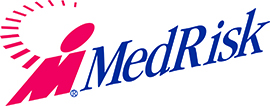On-Demand Webinar
Three Keys to Managing Psychosocial Barriers to Recovery
Presenter

Webinar Description
By now, we all understand that psychosocial barriers can impede injury recovery, sometimes quite dramatically. And it’s not an isolated issue. More than 40% of employees with lost-time injuries have experienced a psychosocial barrier to recovery, according to 2021 claims data from Travelers.
Conversations about these issues are more common today among workers’ comp pros, but injured workers themselves may still be struggling to share the information stakeholders need to help them, thinking of it as personal business unrelated to their injury recovery. Knowing what to ask and how to ask it can help.
In this webinar, you’ll learn about the crucial role each stakeholder plays in managing psychosocial barriers to recovery. Understanding these roles can help set proper expectations and identify where breakdowns may be occurring.
Our expert speakers will also discuss opportunities for improving communication between stakeholders, such as early identification and effective interdisciplinary communication.
You’ll gain insights into effective strategies to improve physician-driven communication, motivational interviewing techniques, and a closer look at the strategies already known to be ineffective.
At the end of this hour, you’ll have a clearer understanding of how effective communication, early identification, and a multi-disciplinary approach are crucial for managing psychosocial barriers to recovery.
Intro by












